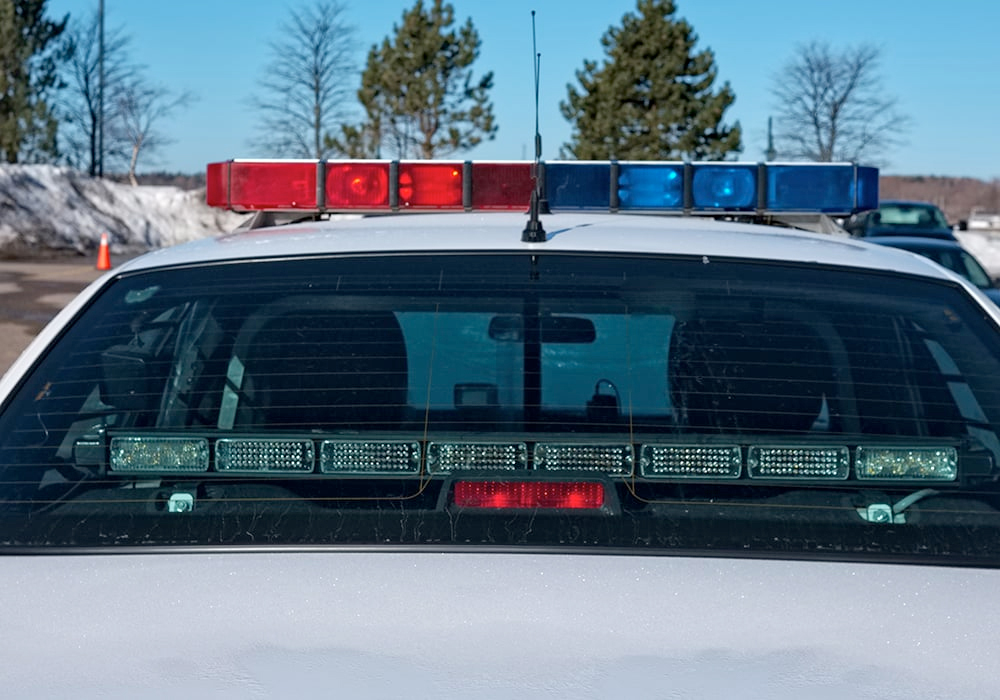An online survey has found most rural Albertans oppose the creation of a provincial police force and they feel safe in their communities, but they also feel that crime has increased.
It is a mistake to think of rural areas as stereotypical places of isolated peace and quiet that don’t have to worry about crime, said Paul McLauchlin, president of the Rural Municipalities of Alberta. “And it may have been that way, and I think that people like to believe that, but I think substance abuse and crime has grown. We’ve had our own homegrown criminals in rural Alberta as well.”
Read Also

New program aims to support plant-based exports to Asia
Understanding the preferences of consumers in Taiwan and how they differ from Indonesia or Malaysia isn’t easy for a small company in Saskatchewan.
The survey on rural perceptions of policing in Alberta was sponsored by the RMA and the University of Lethbridge’s Prentice Institute for Global Population and Economy. It was conducted by Leger from late January to February and involved about 1,470 respondents from across the province, with 504 people self-identifying as rural.
Answers were rated on a scale from strongly agree to strongly disagree, with the results released April 13. About 54 percent either disagreed or strongly disagreed with Alberta creating its own police force, with about 23 percent either agreeing or strongly agreeing with the proposal.
About 23 percent neither agreed nor disagreed, said a report on the survey by Prentice Institute director Lars Hallstrom and associate professor Tanya Trussler of Mount Royal University in Calgary.
“Overall, most Albertans are not supportive of either the dissolution of the RCMP or the creation of an Alberta Police Service,” the report stated.
It could cost as much as $1.5 billion for the Alberta government to create its own police force, with much of the financial burden passed on to rural municipalities, said McLauchlin in an earlier interview. The RMA has called on the government to hold a provincial referendum.
Alberta’s governing United Conservative Party has been publicly discussing the idea of a provincial police force since at least 2020 but no decision has been made.
The recent provincial budget provided $3 million for one-time grants of $30,000 for municipalities to study the feasibility of transitioning from the RCMP to their own self-administered police force or a regional equivalent, said Minister of Public Safety and Emergency Services Mike Ellis.
“Our focus at this time is to empower municipalities to help them find their own policing solutions for their communities’ unique needs.”
McLauchlin said the provincial budget announcement of $27.3 million to expand the Alberta Sheriffs marked a pivot away from the proposed Alberta Police Service. The UCP doesn’t want it to become an issue in the provincial election May 29, he said.
McLauchlin said the provincial police initiative is likely being driven by other forces within the UCP “because the majority of people that I know, including MLAs, they’re having a really tough time rationalizing it at any one time.”
The survey was conducted before the provincial budget and its measures on rural crime and policing, said McLauchlin. Although the results weren’t originally going to be made public before the election, “that’s how it worked. But I think it becomes we just need to talk about solutions as opposed to political solutions.”
Although about 75 percent of respondents in the survey said they feel safe in their communities, about 56 percent felt crime had been increasing, said the report. “This is likely a reflection of the higher rural crime rates in recent years making respondents more likely to be in closer proximity to crime.”
It is vital to strengthen rural access to mental health and addictions services, allowing more focus to be placed on early intervention for the handful of repeat offenders that are often behind rural crime, said McLauchlin.
“If I go into any community in rural Alberta, I can just say ‘who’s committing the crime?’ and they’ll give you those 10 names that have 100 charges to date. You know, that’s a frightening prospect.”
The survey found that about 79 percent of respondents either agreed or strongly agreed the criminal justice system was not hard enough on criminals. It also said trust in the RCMP was particularly low in the RMA’s District 4, which contains 14 municipalities in northwestern Alberta ranging from the County of Grande Prairie to Northern Sunrise County.
The survey found only 50 percent either agreed or strongly agreed they trusted the RCMP, with about 59 percent feeling safe in their community. However, about 68 percent of respondents in District 1 in southern Alberta trusted the RCMP, with about 88 percent feeling safe.
The data makes sense because District 4 has a low population that is geographically remote, which means increased response times for the RCMP, said McLauchlin.
“I think that the reliance on policing in those areas is probably more complex…. The accessibility to the RCMP really just becomes a question of geography and distance, and you can see how the data plays out in the far north.


















